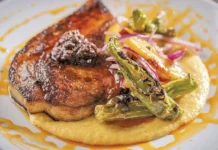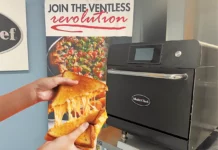
New York City Council member Ritchie Torres proposed legislation last month that would require food and retail establishments to accept cash and forbid them from only accepting credit and debit cards. Retailers and restaurants that do not take physical currency, Torres says, box the unbanked and underbanked—populations that, disproportionately, tend to be non-white—out of the economy.

“There are hundreds and thousands of New Yorkers who may have no permanent address or home, and many New Yorkers who are underbanked, either because of poverty or because they lack documentation,” said Ritchie Torres. “Requiring a card is erecting a barrier for low-income New Yorkers period.”
While unbanked people lack bank accounts entirely, the underbanked may maintain them, but rely primarily on other modes of financial transaction (cash, for example). According to the 2017 Survey of Unbanked and Underbanked Households, over 14 million adults qualified as unbanked and nearly 49 million qualified as underbanked nationwide. Black and Hispanic households were far more likely than white households to operate outside the banking system, a statistic that serves a point Ritchie Torres emphasized.
“Cashlessness seems benign,” he noted, “but when you reflect on it, the insidious racism that underlies a cashless business model becomes clear. In some ways, making a card a requirement for consumption is analogous to making identification a requirement for voting. The effect is the same: It disempowers communities of color.”
A number of New York restaurants have lately embraced the cashless push: Dos Toros, Dig Inn, Sweetgreen, Two Forks, Bluestone Lane coffee, many Danny Meyer establishments, the list goes on. The most common arguments in favor of cashlessness typically evoke a desire to keep apace with the times, hygiene even the urge to reduce security risks (you can’t rob the cash registers if there are no registers to rob).
And then there’s the assumption that everyone uses cards all the time anyway, which strikes Torres as classist and a marker of oblivious privilege. And indeed, some cashless restaurants do not seem particularly eager to attract the people their payment policies leave out: The now-closed Commerce put a moratorium on cash in 2009. At the time, its co-owner, Tony Zazula explained the decision thus: “If you don’t have a credit card, you can use a debit card. If you don’t have a debit card, you probably don’t have a checking account. And if you don’t have a checking account, you probably shouldn’t be eating at Commerce to begin with.”
Prominent establishments that have largely stopped accepting cash in recent years include the salad chain Sweetgreen. The company has cited increased efficiency as one of the benefits of the shift. “The fast-casual food industry is facing several headwinds, like rising rents and labor costs, so businesses like ours require creative and sustainable solutions to scale smartly and continue building healthier communities,” the company wrote on its move towards going cashless.
“At our cashless locations, our team members were able to do 5–15% more transactions an hour, which means guests were in and out several minutes faster in a cashless store than one that accepts cash. And while it took some adjustments to consumer behaviors, most guests have adapted to paying with card or app and understand why we’re moving this way,” the company said.
Jessica Walker, President and CEO of the Manhattan Chamber of Commerce, noted businesses decide to stop accepting cash for a number of reasons, including convenience and increased security. “Just on the face of it, I think it goes against where we’re headed with the modern economy,” she said. “I think it would be a mistake to move in this direction without really thinking about the ramifications and hear from business owners about why they might be doing this.”
Torres said he suspects businesses will mobilize against the bill because it’s ‘tinkering with their convenience status quo.’ “But just like we have to protect against gentrification in our neighborhoods, we have to do the same with gentrification in the marketplace,” he said. “Requiring credit cards for consumption is a little like requiring identification for voting – it has the effect of erecting barriers for communities of color.”
In his legislation, Ritchie Torres proposed a $250 penalty for a no-cash restaurant’s first offense, and a $500 for each subsequent violation. He expects that the cashless chains and the business community will make a stink about the measure, but he remained hopeful that the City Council will ultimately support it.























